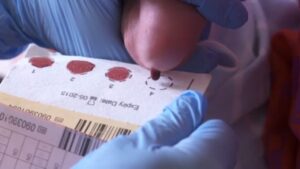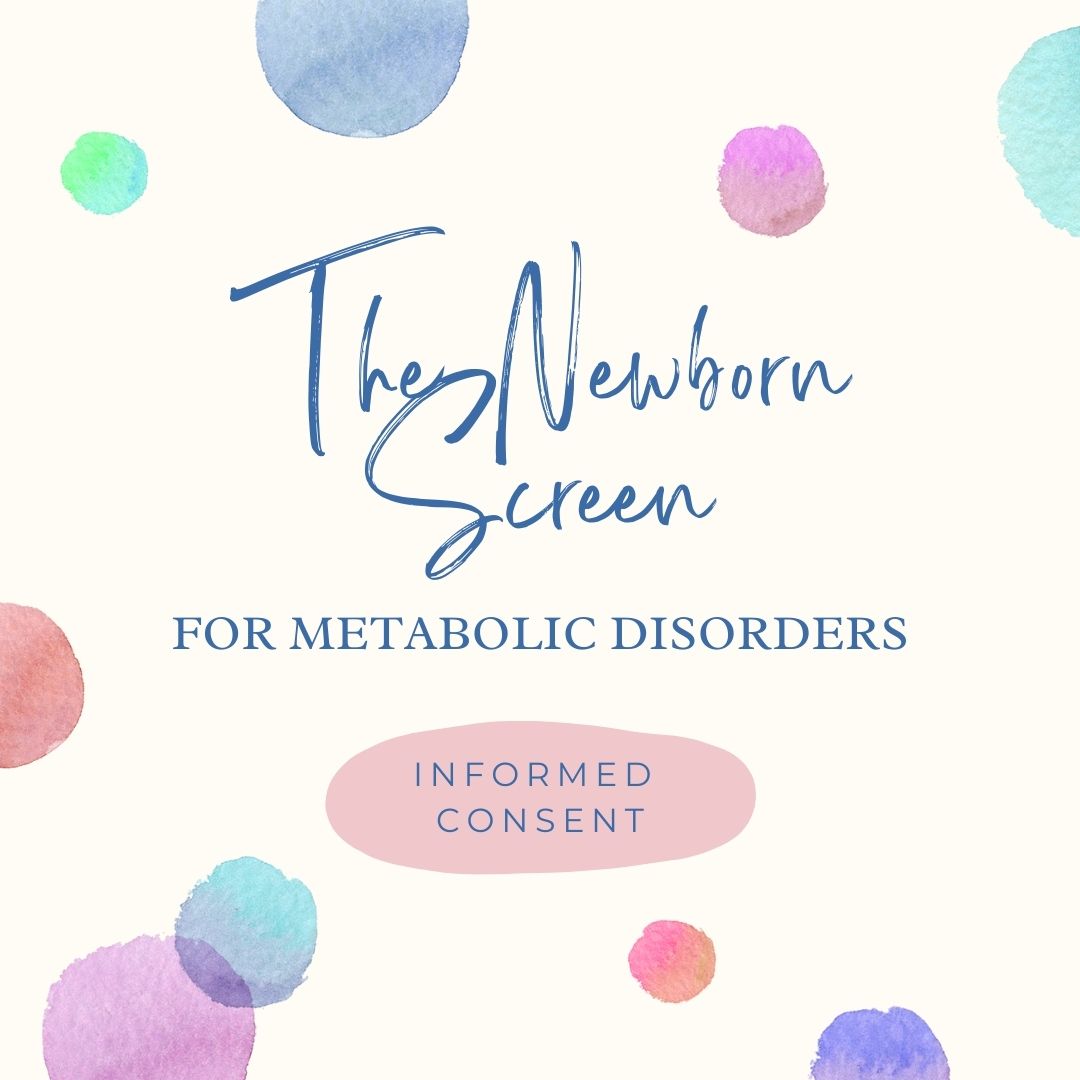Please read the disclaimer.
The Metabolic Newborn Screen, also known as the heal stick or heal prick test, also known as the PKU, screens your baby for disorders that are not part of the genetic testing that can be done during pregnancy. It is done by poking the baby’s heal and making it bleed, much like a finger prick to test blood sugar. The blood is collected on a specially treated paper and sent to a lab in Baton Rouge (or Little Rock if in AR). The lab screens for 28 different disorders. A full list of the disorders with their descriptions can be viewed on the Louisiana Dept. of Health website here. Arkansas screens for 31 disorders, the list can be viewed here.

Make note; a screen determines there is a greater likelihood that a condition might exist, while a test determines whether the condition does exists or not.
Some states, like Louisiana and Arkansas, perform one newborn screen, usually when the baby is one to three days old. By this time, the baby has had time to eat and have a bowel movement, time to metabolize the meal. Most disorders can be detected by this amount of time. There is a very slight chance that a disorder may be missed. However, early detection is crucial so the treatment can begin before the disorder has a chance to do any organ damage to the baby.
Other states, such as our neighbor Texas, do the early screen at day one for early detection and another screen at two weeks for any disorders that may have been too early to detect during the first screen.
In my opinion, performing two screen would be more thorough for the metabolic disorders. However, I understand that a visit to a pediatrician when the baby is two weeks old can pose risks of exposure to other illnesses. I perform the screen between 3-5 days after the baby is born.
When a risk for having a metabolic disorder is identified by the lab, you and your pediatrician are contacted by the health department so you can get further testing and, if needed, the treatment your baby needs. In many cases, treatment is a dietary supplement.
Concerns Parents May Have
Parents love their babies and want to keep them from needless suffering in any way. The Metabolic Newborn Screen does stick the baby on their sensitive heel. Yes, it momentarily hurts them. I have found that performing the procedure while the baby is at the breast provides them with a great deal of comfort. Most of the time, they start to suckle vigorously for about 10 seconds, then nurse as they normally would while the blood drops are collected. I assure you, there is no long term trauma.
Occasionally, parents are concerned that the State has their child’s DNA from the specimen sent to them, and worry what the State may want with it. It is true that Louisiana keeps the specimen for about a month. After which, it is discarded. I am not sure about Arkansas, but their number is 866-769-9043, if you wish to ask them. I can find no evidence that either state is storing the specimens long term for the DNA or any other reason. If you are not convinced, you may want to look into Perkin-Elmer labs. They are a private company that processes Metabolic Newborn Screens. A list of disorders screened for can be found here. It runs about $200 plus shipping. Insurance will not cover it.
Let your provider or baby’s pediatrician know if you have any questions about the Metabolic Newborn Screen


